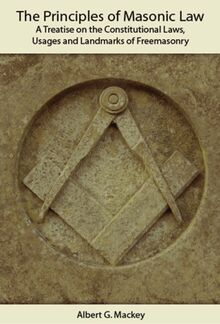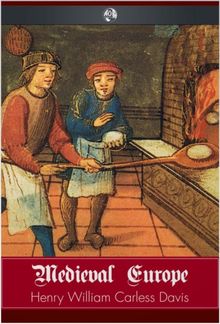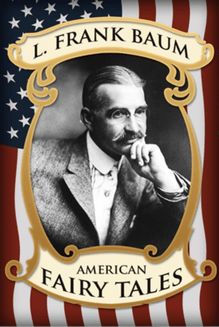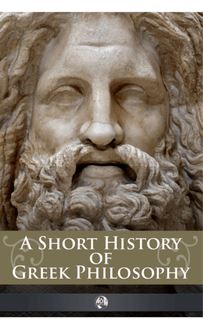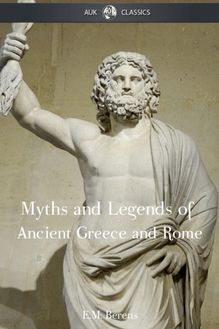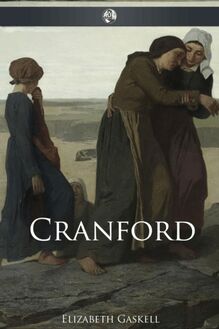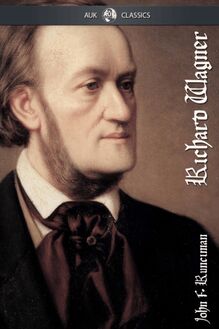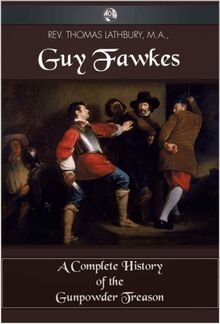-
 Univers
Univers
-
 Ebooks
Ebooks
-
 Livres audio
Livres audio
-
 Presse
Presse
-
 Podcasts
Podcasts
-
 BD
BD
-
 Documents
Documents
-
- Cours
- Révisions
- Ressources pédagogiques
- Sciences de l’éducation
- Manuels scolaires
- Langues
- Travaux de classe
- Annales de BEP
- Etudes supérieures
- Maternelle et primaire
- Fiches de lecture
- Orientation scolaire
- Méthodologie
- Corrigés de devoir
- Annales d’examens et concours
- Annales du bac
- Annales du brevet
- Rapports de stage
La lecture à portée de main
Vous pourrez modifier la taille du texte de cet ouvrage
Découvre YouScribe en t'inscrivant gratuitement
Je m'inscrisDécouvre YouScribe en t'inscrivant gratuitement
Je m'inscrisEn savoir plus
Vous pourrez modifier la taille du texte de cet ouvrage
En savoir plus

Description
Sujets
Informations
| Publié par | Andrews UK |
| Date de parution | 26 septembre 2010 |
| Nombre de lectures | 0 |
| EAN13 | 9781849892216 |
| Langue | English |
Informations légales : prix de location à la page 0,0224€. Cette information est donnée uniquement à titre indicatif conformément à la législation en vigueur.
Extrait
Title Page
GUY FAWKES
A Complete History of
The Gunpowder Treason
By
Thomas Lathbury
Publisher Information
This electronic version published in 2010 by
Andrews UK Limited
www.andrewsuk.com
This edited version, including layout, typography, additions to text, cover artwork and other unique factors is copyright Andrews UK 2010. No part of this digital publication may be reproduced, stored in a retrieval system or transmitted in any form or by any means electronic, mechanical, photocopying, recording or otherwise without written permission of the copyright owner.
Preface
Though the particula rs connected with the Gunpowder Treason may be perused in the general histories of the period, yet I am not aware, that any modern narrative of that dark design is to be found in a separate form. Many brief sketches have, indeed, been published in various modern works: but no full and complete history of the Treason has ever been set forth. In compiling the present volume, I have collected, from various quarters, all the information which I could discover on the subject. It will be found to be the most complete narrative of the Treason ever published in a detached form: at the same time it is sufficiently concise not to weary the patience of the reader.
As to the seasonableness of such a publication, there can be but one opinion among Churchmen. The aspect of the times, the rapid advances of Romanism, the appointment of certain Roman Catholics to high and important offices in the State, and the countenance given to Popery in high places, are circumstances which naturally direct the attention of all reflecting persons to the principles of that Church, which has recently appeared to gain fresh strength in this country. The question must force itself upon the notice of every true Protestant. The Church of England is assailed on every side, simply because she is the strongest bulwark ever erected against the encroachments of Popery: and history proves that, from the period of the Reformation, our own Church has been unceasingly attacked, in some way or other, by the advocates of Romanism. It is, therefore, very desirable that we should consult the past history of our country, in order that we may discover how the active emissaries of Rome have always acted. The Gunpowder Treason is one of the darkest tragedies in our domestic history: and the present work contains a faithful narrative of that detestable conspiracy. I have endeavoured also to exhibit the principles on which the conspirators acted: and I have proved that these principles are still retained by the Church of Rome.
In order to furnish the reader with a full view of the working of Popish principles, I have given a sketch of all the Papal attempts against Queen Elizabeth.
In the last chapter I have inserted the Act of Parliament for the Observance of the Fifth of November. I have printed the Act, because there are many clergymen who have never seen it, and who are not acquainted with the few works in which it is to be found. The clergy are commanded to read this Act every year, on the Fifth of November: and as it is not easily to be procured, or, at all events, is not attainable in a separate form, I cannot but conceive that I am performing an acceptable service, in thus placing it before the public. It is my earnest hope that the publication of this little volume may be the means of bringing some of my clerical brethren to a better observance of the day.
I have also noticed the variations which the Service for the Fifth of November has undergone, since its first publication in 1606, to its final revision in 1689.
It is true that every one knows something of the history of the Gunpowder Treason: but it is also true, that very few are acquainted with those principles which gave it birth. We see, in this treason, to what lengths the principles of the Church of Rome have led their votaries: and who can assert that she is, in any respect, changed? The Romanist denies that the principles of his Church are changed: nay, he must do so, or renounce the doctrine of infallibility, which is incompatible with change: why, then, should Protestants volunteer assertions, respecting the altered character of Popery, when the Papists themselves deny the fact altogether? I may venture to assert that the individual who advances such a statement, is ignorant of the real principles of the Church of Rome.
Bath,
October, 1839.
Chapter I
A Sketch Of Papal Attempts In England And Ireland During The Reign Of Elizabeth. The State Of Religion And The Country On James’s Accession.
As an introduction to the subject, of which this volume professes more especially to treat, I purpose to give a sketch of the proceedings of the emissaries of Rome in this country, during the long reign of Queen Elizabeth. Queen Mary died A.D. 1558, when her sister Elizabeth succeeded her on the throne. Paul IV. at this time occupied the papal chair: but in less than a year after her accession he was removed by death, and was succeeded by Pius IV. Both these pontiffs were quiet and moderate men, compared with several of those who came after them. At all events, they did not proceed to those extremities to which their successors resorted. There were, indeed, parties in the court of Rome, who laboured to induce these pontiffs to excommunicate the queen, as a heretic and a usurper; but recollecting the fatal consequences which had issued from the hasty proceedings of Clement against Henry VIII., or, probably imagining that greater benefits would result from gentle than from violent measures, they pursued a moderate course, exhorting the queen to return to her allegiance to the see of Rome, and even making promises of concessions respecting the reformation. In 1566, Pius V. was promoted to the papal chair. In a very brief space he gave indications of a departure from the moderate councils of his two immediate predecessors. The efforts of Philip II. of Spain were also, during the early years of this reign, directed to the same object with those of Paul IV. and Pius IV. The king was anxious to marry Elizabeth, in order that he might exercise his influence in England; and as long as he could entertain a hope that his wishes would be realized, he seconded the moderate measures of the Roman pontiff. His expectations on this subject were destined to disappointment; when perceiving that a marriage with the queen was out of the question, he directed his attention towards the accomplishment of his designs on this country by other means than those of treaty and diplomacy.
As soon as Pius V. was fixed in the papal chair a different line of policy, therefore, was pursued towards England. Some few years, indeed, elapsed before the queen was actually excommunicated; but conspiracies and treasons were contrived at Rome, with a view to their execution, as soon as suitable persons could be found for the purpose.
Pius V. was the pontiff by whom the bull of excommunication against Elizabeth was issued. The document was dated March, 1569, or 1570, according to the present mode of computation. Hitherto the court of Rome had abstained from any direct attempt against the queen and the country: but from this time plots were contrived and treasons planned in rapid succession; for when one scheme was frustrated, by the vigilance of the government, another was adopted; so that the whole reign of Elizabeth, with the exception of the early portion of it, was constantly developing some machination or other, devised by the emissaries of Rome. At the head of the confederacy against the queen were the pope and the king of Spain, who hated her with the most deadly hatred, - the former, because she was the chief stay of the reformation, the latter, because she was an obstacle to the prosecution of his designs on this country [1] .
The fi rst act of rebellion was the attempt of the earls of Westmoreland and Northumberland. This was soon after the bull was issued. In all the treasons and rebellions of this reign some of the priests of Rome were more or less concerned; and these two earls were instigated to the attempt by Morton, an Englishman and a priest, who was sent into England by the pope himself, for the express purpose of stirring up rebellion. This design, however, was strangled in its birth, and its promoters paid the penalty of their lives.
In 1576 Pius V. paid the debt of nature, and was succeeded by Gregory XIII., who did not depart from the practices of his predecessor. Stukely, another subject of the queen’s, was authorised to go into Ireland by his holiness and the king of Spain; and the pope had the presumption to pretend to confer the title of marquis and earl of several places in that country. He was commissioned to stir up rebellion, the pope engaging to supply men, and the king of Spain promising supplies of money. The purpose was, however, defeated: but the next year several individuals were actually sent into Ireland, accompanied, as usual, by Sanders, a priest, who was possessed with legantine authority from his holiness. To encourage the Irish, a banner, consecrated by the pope, was sent over, and every other means was resorted to, which the most inveterate enmity could devise. The pontiff also sent them his apostolical benediction, granting to all who should fall in the attempt against the heretics , a plenary indulgence for all their sins, and the same privileges as were conferred on those who fell in battle against the Turks. Sanders, however, died miserably, and the attempt completely failed.
It was about the year 1580 that the seminary priests, who were so designated from the circumstance of being trained in certain seminaries on the Continent, instituted especially for English priests, began to come over
-
 Univers
Univers
-
 Ebooks
Ebooks
-
 Livres audio
Livres audio
-
 Presse
Presse
-
 Podcasts
Podcasts
-
 BD
BD
-
 Documents
Documents
-
Jeunesse
-
Littérature
-
Ressources professionnelles
-
Santé et bien-être
-
Savoirs
-
Education
-
Loisirs et hobbies
-
Art, musique et cinéma
-
Actualité et débat de société
-
Jeunesse
-
Littérature
-
Ressources professionnelles
-
Santé et bien-être
-
Savoirs
-
Education
-
Loisirs et hobbies
-
Art, musique et cinéma
-
Actualité et débat de société
-
Actualités
-
Lifestyle
-
Presse jeunesse
-
Presse professionnelle
-
Pratique
-
Presse sportive
-
Presse internationale
-
Culture & Médias
-
Action et Aventures
-
Science-fiction et Fantasy
-
Société
-
Jeunesse
-
Littérature
-
Ressources professionnelles
-
Santé et bien-être
-
Savoirs
-
Education
-
Loisirs et hobbies
-
Art, musique et cinéma
-
Actualité et débat de société
- Cours
- Révisions
- Ressources pédagogiques
- Sciences de l’éducation
- Manuels scolaires
- Langues
- Travaux de classe
- Annales de BEP
- Etudes supérieures
- Maternelle et primaire
- Fiches de lecture
- Orientation scolaire
- Méthodologie
- Corrigés de devoir
- Annales d’examens et concours
- Annales du bac
- Annales du brevet
- Rapports de stage


